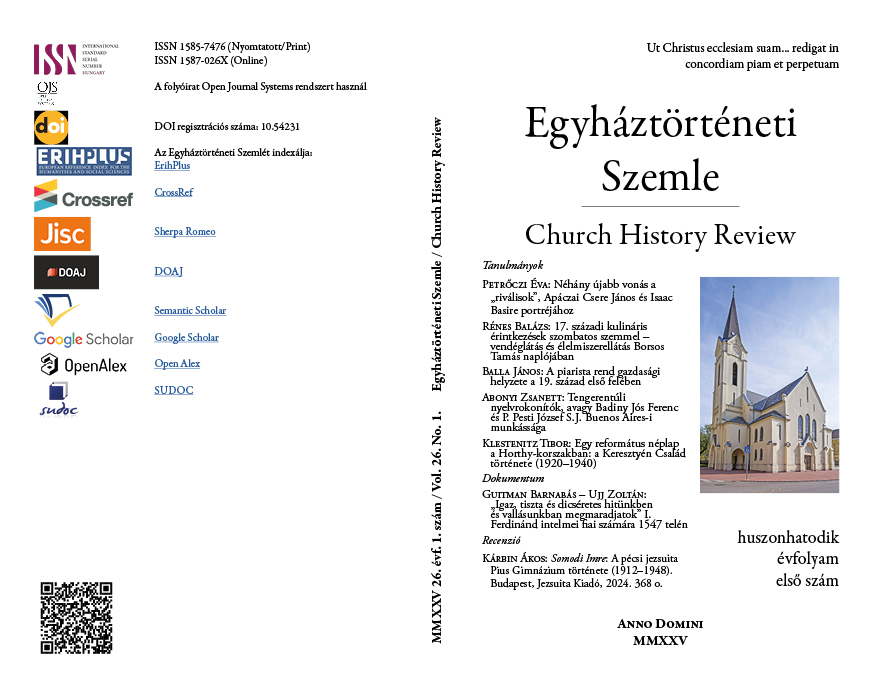A Reformed Weekly in the Horthy Era: The History of Keresztyén Család (1920–1940)
DOI:
https://doi.org/10.54231/ETSZEMLE.26.2025.1.4Keywords:
Great Depression, Horthy era, László Ravasz , Reformed newspapers, Sándor Czeglédy, Zoltán TildyAbstract
This study explores the history of a Protestant weekly of the Horthy era, which was rather significant in its time but is now mostly forgotten. Keresztyén Család was founded in 1920 by Sándor Czeglédy, a Reformed pastor from Győr, with the aim of reaching social groups that had become alienated from Protestantism. The weekly paper, which began as a local publication and primarily featured devotional content and practical guidance for everyday life, soon reached a noteworthy circulation of over 20,000 copies. This success was in part due to its cooperation with the Sylvester printing house, led by Zoltán Tildy, the active involvement of Reformed pastors in its distribution, and the popularity of its annual calendar. However, the golden age of the 1920s was followed by a sharp decline during the Great Depression, the impact of which was exacerbated by the near-bankruptcy of the printing house and a noticeable drop in editorial standards. The reorganization of the paper began in 1934, a process that can be closely followed through surviving editorial correspondence. Many of the contributors believed that the challenges facing the Reformed press could be overcome through cooperation, better coordination between the various outlets, and even the merging of editorial offices working in the same area. This strategy was eventually implemented in the case of Keresztyén Család as well: in 1939, control of the paper was transferred to a body under the leadership of the Reformed bishops, and after absorbing several smaller publications, it resumed its operations from Easter 1940 under the new title Református Jövő.
Downloads
Downloads
Published
Conference Proceedings Volume
Section
Categories
License
Copyright (c) 2025 Klestenitz Tibor (Szerző)

This work is licensed under a Creative Commons Attribution 4.0 International License.
The author(s) reserve the copyright of their work.
The Church History Review does not restrict the rights of authors to place their manuscripts or manuscript versions on preprint servers or other hosting. This applies generally to the following formats.
- Submitted version
- Accepted version (manuscript accepted by the author)
- Published version (Version of Record)









